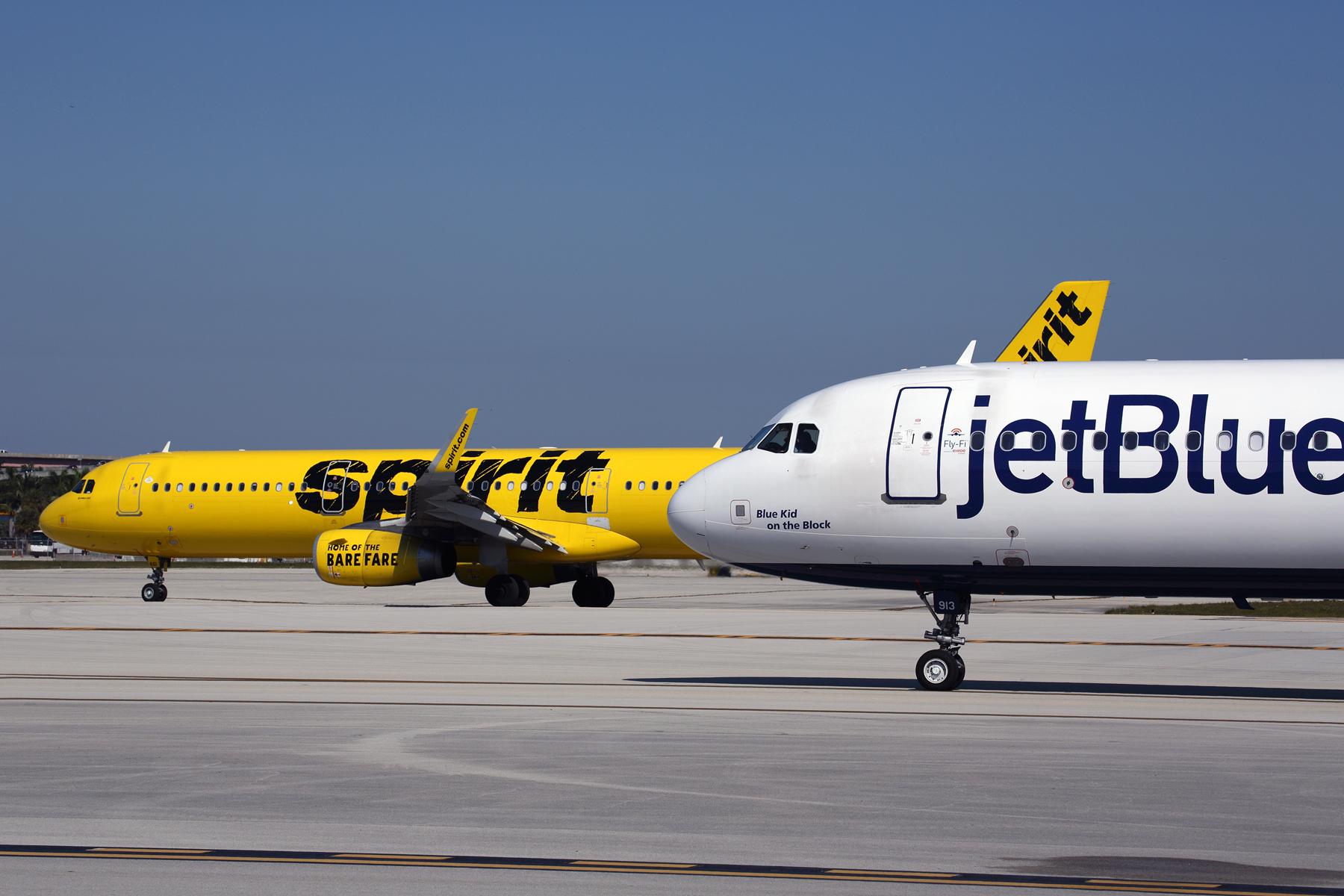
WASHINGTON—The U.S. Transportation Department (DOT) denied motions from Spirit Airlines and JetBlue Airways to halt flying to dozens of markets across the country, signaling a refusal to budge on minimum service levels included in the Coronavirus Aid, Relief, and Economic Security (CARES) Act.
The CARES Act requires carriers receiving federal payroll aid to continue flying to all markets in their schedules through Sept. 30, to the extent “reasonable and practicable,” as determined by the DOT. The decision to deny the two carriers’ waiver requests dashes the hopes of a pack of smaller airlines—including Allegiant Air, Frontier Airlines and Sun Country Airlines—that have also asked for substantial relief from the service level mandate.
Spirit was among the first carriers to apply for route exemptions, seeking permission to halt flying to 26 markets comprising roughly one-third of its total network. The South Florida-based ULCC has already suspended service to all 26 points, which include Austin, Texas; Charlotte, North Carolina; New York City; Minneapolis-St. Paul; and San Francisco, among many others.
The DOT will allow Spirit to suspend service to just a single market—Aguadilla, Puerto Rico—agreeing that strict travel restrictions imposed by the territory’s governor make operating there impractical.
Although Spirit applied for the federal payroll support along with virtually all its competitors, the carrier was notably absent from a list of 10 airlines that signed onto an agreement in principle on aid terms with the Treasury Department earlier this week. If Spirit does decide to accept the aid, it will have just seven business days to re-instate service to the 25 affected markets, according to the DOT order.
A Spirit spokesman said the company plans to “fully comply with the U.S Department of Transportation requirements,” while declining to comment on the status of talks with the Treasury toward an agreement over the aid package.
JetBlue had sought to suspend service to 11 markets, including Albuquerque, New Mexico; Dallas-Fort Worth and Houston, Texas; Minneapolis-St. Paul; and Aguadilla and Ponce, Puerto Rico. As with Spirit’s application, the DOT granted a waiver for the Puerto Rican points, while denying all of the carrier’s other requests to curb service.
In rejecting the two motions, the DOT poured cold water on smaller carriers’ hopes to gain greater flexibility from a policy they have said unfairly burdens them. The National Air Carrier Association, which represents many leisure carriers and ULCCs, has argued that the policy disproportionately impacts its members due to their point-to-point business models and lower frequencies on most routes.
Because smaller carriers operate less daily trips, the mandate means they must operate a higher proportion of their normal schedules than larger players like American Airlines, Delta Air Lines, United Airlines or Southwest Airlines. Las Vegas-based leisure carrier Allegiant Air, for example, has said that the policy will force it to operate a percentage of its pre-March schedule that is 6.9 times greater than Southwest’s percentage, 4.6 times greater than American’s and 4.1 times higher than Delta’s.
The DOT provided some respite for smaller carriers by allowing those with a domestic capacity share less than 10% to operate a minimum of 3X-weekly to their most served markets, as opposed to 5X-weekly for larger carriers. But smaller airlines argue even that requirement is too burdensome, considering single-digit load factors and virtually absent demand on many routes.
Denver-based ULCC Frontier has asked for exemptions for 35 domestic markets, more than any other carrier. Allegiant and Sun Country have both sought permission to cease flying to 21 markets. Larger airlines like United and Delta have also requested relief, although to a far lesser extent than their smaller counterparts.





